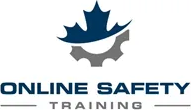Propane Cylinder Handling and Exchange Training

The Benefits of Propane Cylinder Handling and Exchange Training
Propane is a versatile and widely used fuel source in various industries, including residential, commercial, and industrial settings. While propane is a safe and efficient energy source, it can pose risks if mishandled or improperly stored. Propane cylinder handling and exchange training programs are essential for individuals working with propane, whether they are consumers, employees in the propane industry, or professionals in sectors like construction and agriculture. In this article, we will explore the numerous benefits of propane cylinder handling and exchange training and how it contributes to safe, efficient, and responsible propane use.
- Safety First
The primary benefit of propane cylinder handling and exchange training is safety. Propane is a flammable gas that can be hazardous if not handled correctly. Training programs educate individuals about the safe handling, storage, and use of propane cylinders, significantly reducing the risk of accidents, fires, and explosions.
- Compliance with Regulations
Handling propane cylinders involves compliance with various safety regulations and codes. Failure to adhere to these regulations can result in legal consequences, fines, and disruptions to business operations. Propane cylinder handling and exchange training programs are designed to ensure that individuals understand and comply with regional and national safety standards, helping organizations remain compliant.
- Knowledge of Proper Equipment
Training programs equip individuals with knowledge about the proper equipment and tools needed for handling propane cylinders. They learn how to select and use regulators, valves, connectors, and safety devices correctly. This knowledge ensures the safe and efficient operation of propane equipment.
- Enhanced Leak Detection Skills
Propane leaks can be dangerous due to the potential for gas buildup and ignition. Training helps individuals develop leak detection skills, allowing them to identify and address propane leaks promptly. Quick action can prevent hazardous situations from escalating.
- Customized Training
Propane cylinder handling and exchange training can be customized to address specific industry needs and challenges. Organizations can tailor the training to account for unique factors such as the type of equipment used, specific job roles, and industry-specific regulations. Customized training ensures that individuals are well-prepared for their specific propane handling requirements.
- Increased Efficiency
Well-trained individuals can handle propane cylinders more efficiently. They understand how to use equipment effectively, reduce downtime, and complete tasks more quickly and accurately. Increased efficiency not only boosts productivity but also reduces the time spent exposed to potential safety hazards.
- Emergency Response Preparedness
Training includes instruction on emergency response procedures related to propane incidents. Individuals learn how to react effectively in critical situations, such as leaks, fires, or equipment malfunctions. Being prepared for emergencies minimizes their impact and ensures a timely and effective response, which can be crucial in mitigating potential accidents and injuries.
- Reduced Risk of Accidents
Proper propane cylinder handling and exchange training can lead to a reduction in accidents. Mishandling or improperly connecting propane cylinders can result in accidents, injuries, or property damage. Training programs instill safe practices, reducing the likelihood of such incidents.
- Boosted Confidence
Individuals who complete propane cylinder handling and exchange training gain confidence in their ability to work with propane safely. This confidence translates into more effective and safer handling practices. Confident individuals are less likely to make mistakes due to uncertainty.
- Improved Equipment Longevity
Proper handling and maintenance of propane cylinders can extend their service life. Training programs educate individuals on the importance of proper cylinder storage, maintenance, and inspection. Well-maintained cylinders are less likely to develop issues or leaks, reducing the need for replacements and saving costs.
- Prevention of Environmental Impact
Improper handling of propane can lead to environmental contamination and damage. Leaking propane can contribute to air pollution and pose a risk to aquatic life if it reaches water sources. Training helps individuals prevent environmental damage by minimizing the risk of propane leaks and incidents.
- Protection of Assets
Propane cylinders and equipment are valuable assets for many organizations. Proper handling and care, as taught in training programs, help protect these assets from damage, theft, or misuse. Protecting assets contributes to cost savings and efficient operations.
Propane cylinder handling and exchange training are vital for ensuring safe and responsible propane use in various industries and settings. By promoting safety, reducing accidents, enhancing knowledge of proper equipment, and facilitating quick response to emergencies, these training programs significantly contribute to safe and efficient propane handling. Moreover, they ensure legal compliance, increase efficiency, and protect assets and the environment.
Investing in propane handling and exchange training is not just a legal requirement but also a strategic move to prioritize safety, protect assets, and reduce the risk of accidents and environmental damage. It is an investment in both safety and efficiency, ultimately benefiting individuals, organizations, and the community at large. Individuals who prioritize safe propane handling through proper training not only protect themselves but also contribute to a safer and more responsible use of this versatile energy source.
Click here for an online propane cylinder handling and exchange training course.
Click here for CSA Regulations regarding propane.
Categories
- Aerial Lift
- ATV Training
- Bear Awareness
- Chainsaw Training
- Confined Space
- Defensive Driving
- Forklift Training
- Lockout Tagout
- Online Safety Training
- Overhead Crane
- Pipeline Construction Safety Training
- Propane Handling
- Safety Training Benefits
- Scissor Lift
- Skid Steer Training
- Space Awareness
- TDG
- Telehandler Forklift
- Traffic Control
- Train the Trainer course
- Training Course
- Uncategorized
- WHMIS
- Workplace Harassment and Violence Preventiont
